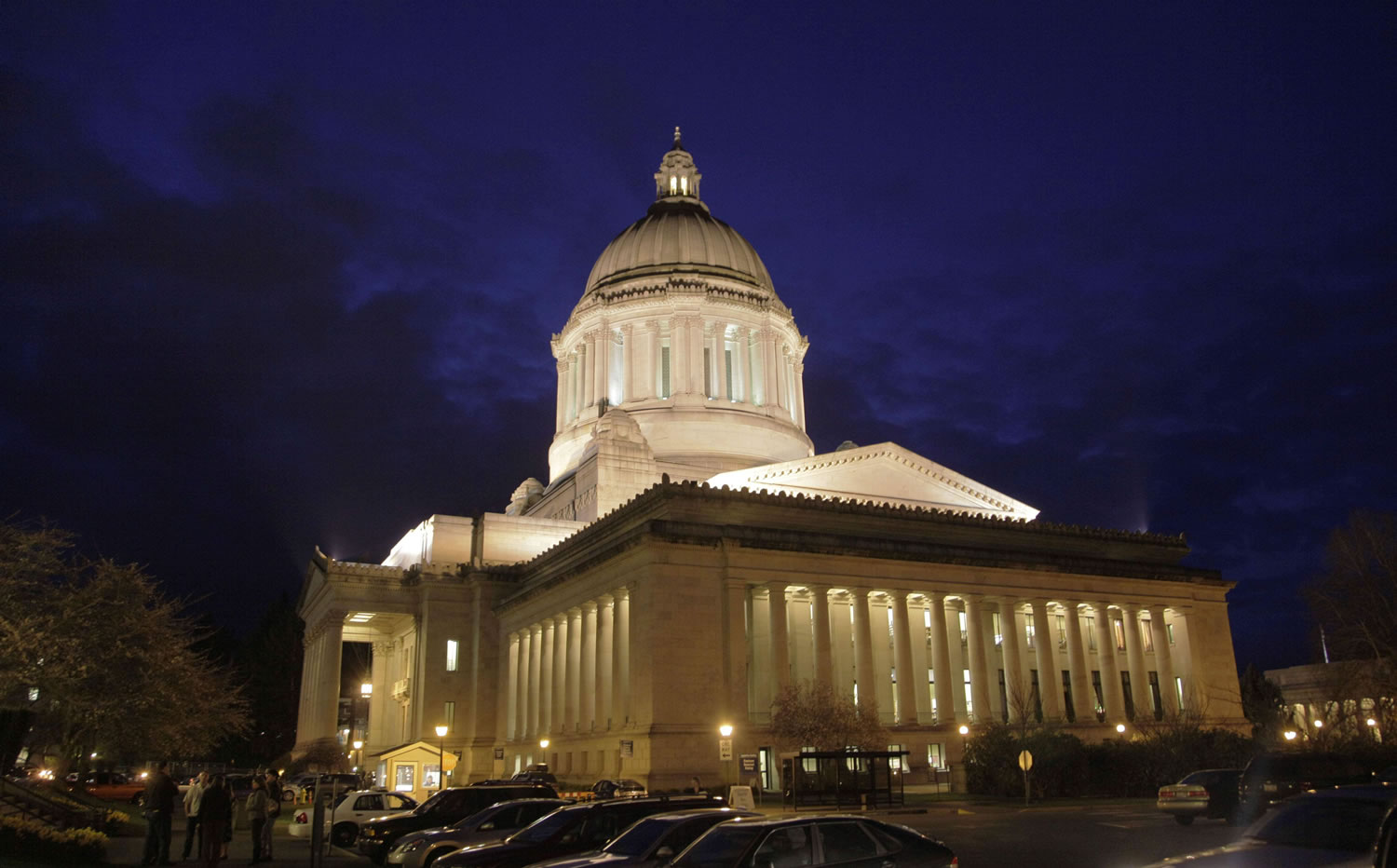Several proposals by Southwest Washington’s state lawmakers are one vote away from crossing the governor’s desk for a signature.
Senate Bill 6445, allowing state transportation officials to establish tolls to pay for a new Interstate 5 bridge over the Columbia River, advanced out of the House Transportation Committee on Tuesday. The legislation, which cleared the Senate on Feb. 14, now waits to be brought before the entire House for a vote.
The 60-day legislative session is scheduled to end March 8.
An economic reform proposal by state Rep. Tim Probst, D-Vancouver, advanced out of the Senate’s childhood education committee. The legislation, House Bill 2170, would require public schools to place a greater emphasis on student career paths that don’t necessarily require four-year degrees, instead making use of technical degrees or trade apprenticeships.
Probst says it makes economic sense to provide different types of career plans for students based on their skill sets, and not all students need to earn a four-year degree.
Meanwhile, Probst’s bill to pay four-year public universities based on how well they meet certain criteria lost steam in the Senate’s higher education committee. It had passed the House with a bipartisan vote of 60-38.
Under House Bill 2265, universities would be given points for increasing the number of graduates overall, for increasing the number of graduates in high-demand fields and for graduating more disadvantaged and minority students. The higher the score, the more money the university gets.
“We simply need to have more high-demand degree production in this state,” Probst said during the Senate committee hearing on Wednesday. “Our economic competitiveness relies on having the most-educated people in the world.”
Probst added that he was working on an amendment to allow the univer
sities to design their own system for how the outcome-based points would be distributed.
Without seeing the new amendment, representatives from four-year universities showed up to oppose the bill. They told lawmakers that public universities already are subject to many quality standards, and they do not need an additional hoop to jump through to prove they’re meeting standards.
Anthony Flinn of Eastern Washington University said the bill seems like a good idea at first, but he worries the proposal would chip away at liberal arts programs.
“One feels a little bit like a dog who thinks he’s being taken to the park and then discovers he’s at the vet,” Flinn said. He said some students need liberal arts programs to prepare them for jobs that demand sophisticated thought and inquiry.
Also losing steam last week was a bill introduced by state Sen. Craig Pridemore, D-Vancouver, to exempt video and audio recordings of closed executive sessions from the state’s Open Public Meetings Act. Local governing bodies are not required to tape their executive sessions, but some do in order to have a better record of their closed meetings.
The proposal, Senate Bill 6109, received a public hearing in the House on Monday but hadn’t advanced out of committee as of Friday. The state’s attorney general and auditor have asked legislators to pass a law requiring the taping of closed-door meetings so the state could investigate illegal executive sessions.
Bills inch closer
House Bill 2558 to create liquor licenses for single-screen movie houses such as downtown Vancouver’s Kiggins Theatre is still going strong in the Legislature.
So is Senate Bill 6383, which would require the Washington Interscholastic Activities Association to lighten up on punishments to student athletes when their coach, administrator or other adult associated with the team violates WIAA eligibility rules. State Sen. Don Benton, R-Vancouver, introduced the legislation in part because of events at King’s Way Christian School, where a volleyball team couldn’t play in the championship game because an administrator scheduled one too many games.
Other Southwest Washington lawmakers’ proposals waiting for their final floor votes include:
• Senate Bill 6508, which would ensure that state Department of Social and Health Services clients who were mistakenly overpaid by the agency would not have to repay the money when the error is the agency’s fault.
• House Bill 2191 to create a $5,000 fine for harming a police dog and a $10,000 fine for killing a police dog. It would remove police dogs from vicious animal statutes.
• House Bill 2280 to allow drivers with disabilities to put a yellow sticker on their car window alerting emergency responders to check the glove box for helpful information, such as a list of the driver’s medications.
• House Bill 2485 to allow schools’ financial paperwork to be sent electronically to county treasurers, who are charged with overseeing public school expenses.
• House Bill 2512 to include pharmacists in the Legend Drug Act, which is a law that makes it illegal to sell or have prescription drugs without a doctor’s prescription.
• House Bill 2735 to speed up some college construction projects by allowing more-expensive projects to skip some preliminary planning steps.
• House Bill 2195to adopt the federal Uniform Interstate Depositions and Discovery Act, which makes it easier for legal parties outside Washington to obtain discovery information in a court case.
Also during week seven of the Legislature, Democrats unveiled proposed supplemental operating and transportation budgets. Proposed supplemental transportation budgets in the House and Senate include at least $54 million more for the Columbia River Crossing project thanks to more money sent in from Oregon and the federal government.
The House Democrats’ supplemental operating budget would address the state’s $1.1 budget crunch by delaying $400 million in payments and giving less money to local governments. Their plan saves $890 million and leaves $504 million in reserves.
Stevie Mathieu: 360-735-4523; http://facebook.com/reportermathieu; http://twitter.com/col_politics; stevie.mathieu@columbian.com.




